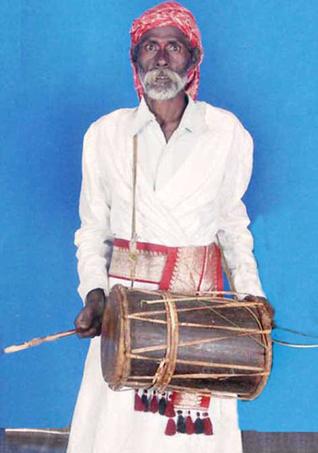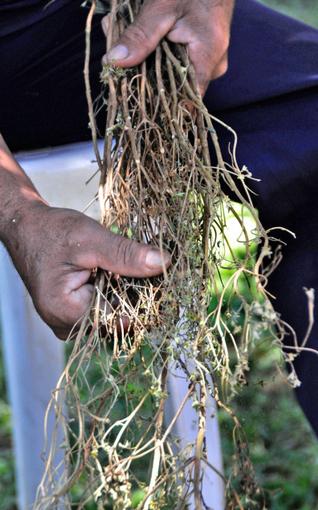Shruti Shibulal has invested in a business that’s a world apart from that of her father. But in her unassuming demeanour she’s kept to the Infosys tradition
Her 0.64 per cent stake in the company her father co-founded is worth close to Rs 900 crore at today’s prices. But 27-year-old Shruti Shibulal, promoter of the recently-launched luxury resort The Tamara, Coorg and daughter of Infosys Co-founder and CEO S D Shibulal, comes across as remarkably down-to-earth and, well, normal. “It’s something I’ve been asked about [the Rs 900 crore] but I don’t really wake up in the morning thinking ‘oh, I’m worth this much’,” says the young entrepreneur, whose casually bunched-up curly hair and black-rimmed glasses lend her an air more grad student than entrepreneur, though she has dressed for the interview in a fitted black cardigan, onion-pink silk blouse and black trousers. (The sole concession to luxury seems to be a sparkling diamond ring on her left hand, about which she will reveal only, with a smile, that “yes, it means something”.)
The down-to-earth demeanour could also have to do with the fact that she was not born with that most desirable of appendages, the proverbial silver spoon. “We had a very middle-class upbringing till the late ’90s. I grew up seeing my dad work obscenely hard and now he’s working harder than ever. We are extremely aware of the value of money,” she says.
My entry into the conference room a little earlier had interrupted a discussion between Shibulal and one of her employees about someone she has just met who was convinced that the building of resorts like hers spelt the beginning of the end for Coorg, a pristine part of Karnataka’s coffee country and the location of Shibulal’s resort. “If she just visited the resort, I’m sure she would be persuaded to think differently,” says Shibulal, with a confidence that is also unassuming. It is a confidence that might have something to do with the fact that she has already launched two popular fine-dining restaurants in Bangalore, the high-end Caperberry known for experimenting with molecular gastronomy and the like, and Faava, which serves Mediterranean cuisine.
Shibulal says she might not always have known she wanted to be in hospitality but she knew what she did not want to do, and one of those things was a career in IT. “Oh, that was decided after the tenth standard itself, when I dropped computer science,” she says. This steering off the IT path is in line with what the children of the other Infosys promoters such as Narayan Murthy and Nandan Nilekani have done. (Infosys also has in place a policy according to which the promoters’ children cannot join the company.)
College was in the US, at Haverford, where she majored in chemistry, with a minor in philosophy. “I was much better at doing things and dealing with people than academics,” she says. This and a determination to be in New York meant a stint with Merrill Lynch’s wealth management division in NYC which, while enjoyable, also made her feel she could do something more.
The foray into the restaurants business happened soon after she returned to India, and more or less by chance — she was looking around for an investment opportunity and chef Abhijit Saha, who was all ready with the blueprint for his restaurant, needed an investor. “I initially thought I’d be a passive investor because it was a business I knew nothing about, but then Abhijit convinced me to get involved,” she says. That involvement covered the entire gamut, from finance and management to taking orders, being the receptionist and spending the odd night in the restaurant. Everything that is, apart from cooking. “I wasn’t allowed to enter the kitchen,” she laughs. “They tried to teach me but I’m not a good cook.”
“When she came on board, she did not have any knowledge about the food and hospitality industry but she used this as a learning opportunity,” says Saha, who is an equal partner in the venture. Saha describes Shibulal as someone very calm and collected, who was also “a very very quick learner” and very easy to work with.
For Shibulal, the time spent in the restaurant business led to many realisations, the first of which was that starting a business in India is not easy. “It was a bit of a shock to realise you can’t get things done just because you want to, especially when you’re coming from the US, where you are used to things working.” It was a year before Caperberry could finally open, a frustratingly long period for any young and enthusiastic promoter, but a time she now views philosophically. “It took me through a lot of learning — you don’t usually have to go through so much disappointment that early in your career,” she says.
She also had to deal with the fact that at 23, she was much younger than most of the people she was working with, which meant it was that much harder to be taken seriously, even if you were one of the promoters. But there were also positives — like the instant gratification the restaurant business provides, unlike other sectors. “Within five minutes you’ll get to know whether the customer likes what you’ve served him. And that’s a bit of a high.”
Though she continues to be a promoter, her involvement in the restaurants had to take a backseat when she returned to the US, to study for her postgraduate degree in management from Columbia University. Meanwhile, The Tamara, Coorg (Tamara means lotus in Malayalam, Shibulal’s mother tongue) was already taking shape, with the land, a 170-acre coffee plantation, having been bought in 2005.
* * *
The resort, in which she is one of the three promoters, opened in April this year and, currently, that’s the business she is focusing on. With rooms starting at Rs 18,000 a night, it’s positioned at the top end of the segment, but for competition, it has to contend with the venerable Orange County and the newly opened Vivanta by Taj.
But Shibulal, who also heads corporate strategy, is unfazed. For one, she believes Coorg is nowhere near being a saturated market, even with the new Vivanta. And the Tamara, she feels, will stand out because of the kind of service it offers. “It’s a place where you can unwind completely while at the same time having the option to do that one hour of work, just in case you need to,” she says. The resort has a five-star rating on popular travel portal Trip Advisor with many ecstatic comments by guests, but then so does the competition.
In her role, Shibulal looks after the direction the company will take, including acquisitions — the next resort they are working on will be in Kodaikanal, a hill station in Tamil Nadu, and another in Alappuzha, Kerala’s backwater country, is also under consideration. She says she also has to ensure every decision the company takes is in line with its philosophy of “sustainable good living”, part of which meant getting more trees planted than were cut down during the construction of the resort, something attested to me earlier by a rival promoter.
Shibulal declines to reveal the exact investment on the grounds that it’s a privately-held company, and says only that they hope to break even in a few years.
Her family does not interfere in any of her business decisions, she says, though she does turn to her parents for advice, at times. “It’s always been that way, our professional lives are quite separate.” In fact, her father met her business partner, Saha, only six months after she had invested in the company. Neither do dinner-table conversations revolve around Infosys or, for that matter, Tamara. “There are so many other things to talk about,” she says.
Outside work, dancing used to be a passion. “I’ve been dancing from three and have learnt everything from ballet to bharatnatyam and have taught hip-hop while I was in university.” But an injury has put a stop to that.
Meanwhile, she has decided to try her hand at cooking again, though she says it’s particularly hard in a city like New York with its smorgasbord of dining options. (She divides her time between New York, where she looks after the family’s investments in the US, and Bangalore.)
The only indulgence she will confess to is travel, mostly to see her friends scattered around the globe. That and the “Tropical Iceberg” from Cafe Coffee Day a thoughtful employee suddenly enters the conference room with. “They know me well here,” she says with a smile.
source: http://www.Business-Standard.com / Home> Life & Leisure / by Indulekha Aravind / Bangalore, December 15th, 2012






